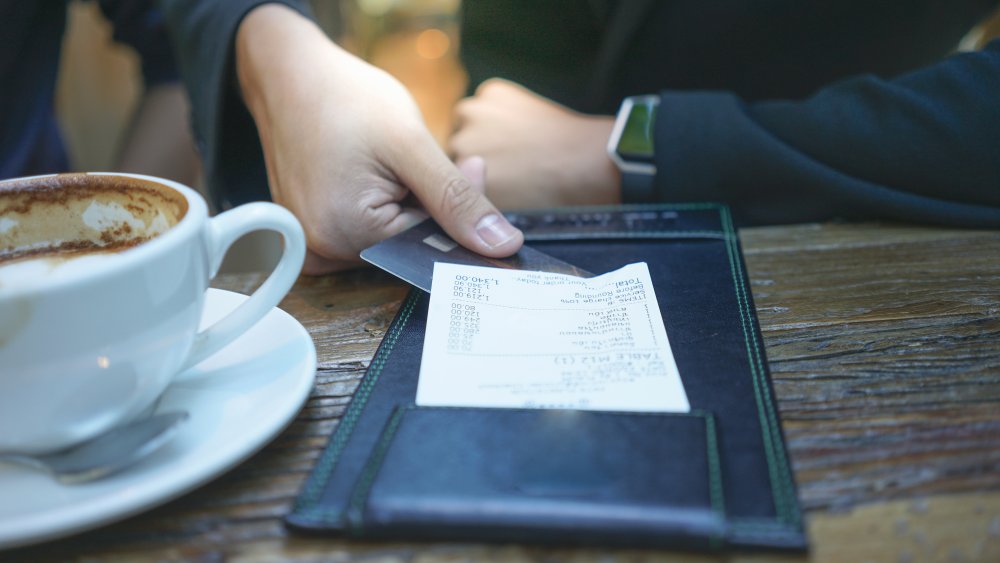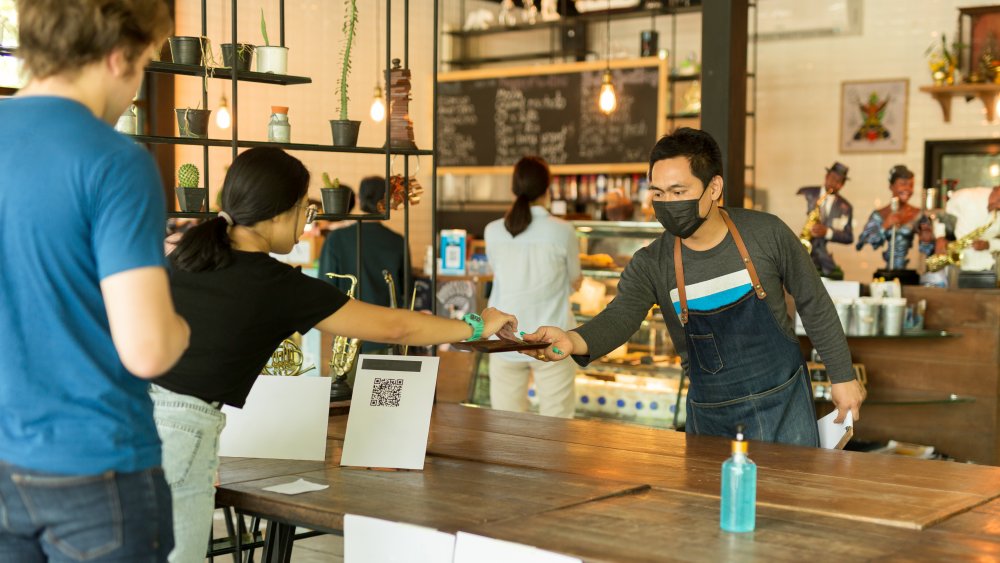The Truth About Restaurants' COVID-19 Surcharges
Restaurants across the country from McDonald's to high-end establishments are starting to reopen their dining rooms after being given the green light from public health officials. However, one of the requirements that comes with reopening is that restaurants will have to enforce social distancing policies to ensure that diners are kept away from each other as much as possible. Some restaurants have found creative ways to enforce these policies. Burger King, for example, handed out enormous cardboard crowns to keep others away in Germany. Others are slightly stranger and rather amusing — for example, the use of mannequins and stuffed animals to make the space feel less empty (via Eater).
However, the impact that coronavirus is going to have on the food and beverage industry is quite serious. In March, the California Restaurant Association estimated that without government help, some 30 percent of the state's restaurants risked collapse if they didn't receive funding help from the state (via AP News).
For the restaurants that are able to stay open, rent costs are going to stay the same, utility costs are going to stay the same, and labor costs and food costs will stay the same as before the pandemic — but given social distancing measures that require many restaurants to open at 50 percent capacity, restaurants will only be able to bring in half of the revenue that they were able to before the pandemic.
How restaurants plan to survive financially in the era of social distancing
So how will restaurants be able to pay their bills when their business plan is modeled on having a restaurant much fuller than half? They pass the costs along to the consumer.
Restaurants are adding COVID-19 surcharges to their bills, according to an ABC report. An unnamed restaurant in Chicago included a 26 percent surcharge on the bill before they decided to lower to 17 percent going forward following a social media outcry. Other surcharges in adjacent service industries have been relatively small — a $3 sanitation charge was reported at a Houston salon, for example.
Although there aren't yet any laws on the books prohibiting this type of action, consumers may soon push for some sort of restrictions, similar to how Seattle was able to cap delivery fees for companies like Grubhub and Uber Go at 15 percent this April (via Eater). For now, though, the best advice is to take your business elsewhere if you're not a fan of the fee.

